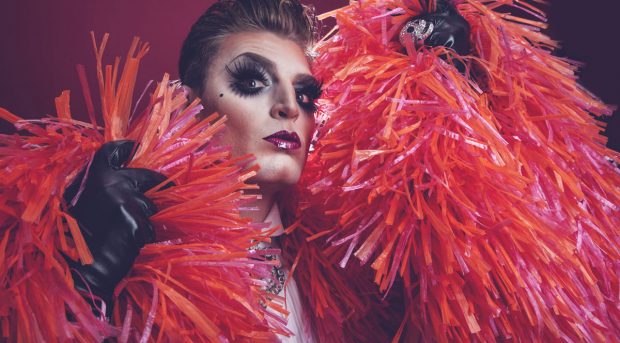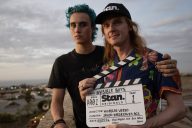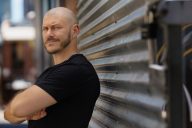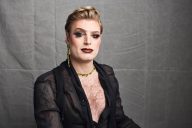Cabaret has entered a new era, as I discovered when I recently interviewed the wickedly entertaining and delightfully honest Reuben Kaye!
When the British Theatre Guide described Reuben Kaye as the ‘evil love child of Liza Minnelli and Jim Carrey’ it was right on the money.
The multiple award-winning and outrageous entertainer has earned high praise around the globe, performing his unique brand of cabaret at venues such as Berlin’s Wintergarten, the Sodra Theatre in Stockholm and London’s Royal Albert Hall. Lavish, witty, anachronistic and brutally honest, Kaye has returned to Australia for a series of festivals and shows.
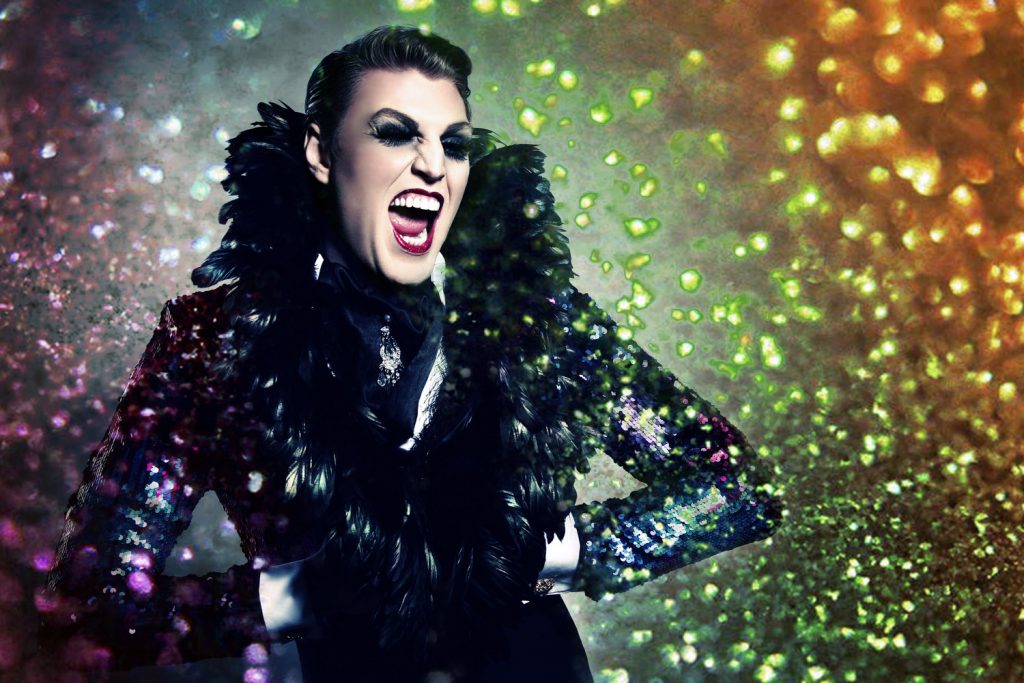
Reuben Kaye – Photography by Rachel Mia
Scratching the surface, it’s clear his desire to perform came early on in childhood, having been raised in a family environment with all the trappings of bohemian culture. But the realisation that he was born to entertain seems to be somewhat literal.
“My brother and I would dance around in dresses reenacting all the gruesome deaths from opera.”
“I reckon if that moment happened, it happened for me in the womb,” says Kaye.
“If there was a moment where I realised that performing was for me, it was my birth. That’s the greatest entrance I could possibly make. I mean, I could have done with better costuming, but the lighting was fabulous!”
If you’ve seen Kaye’s latest show The Butch Is Back, you’d full-heartedly agree.
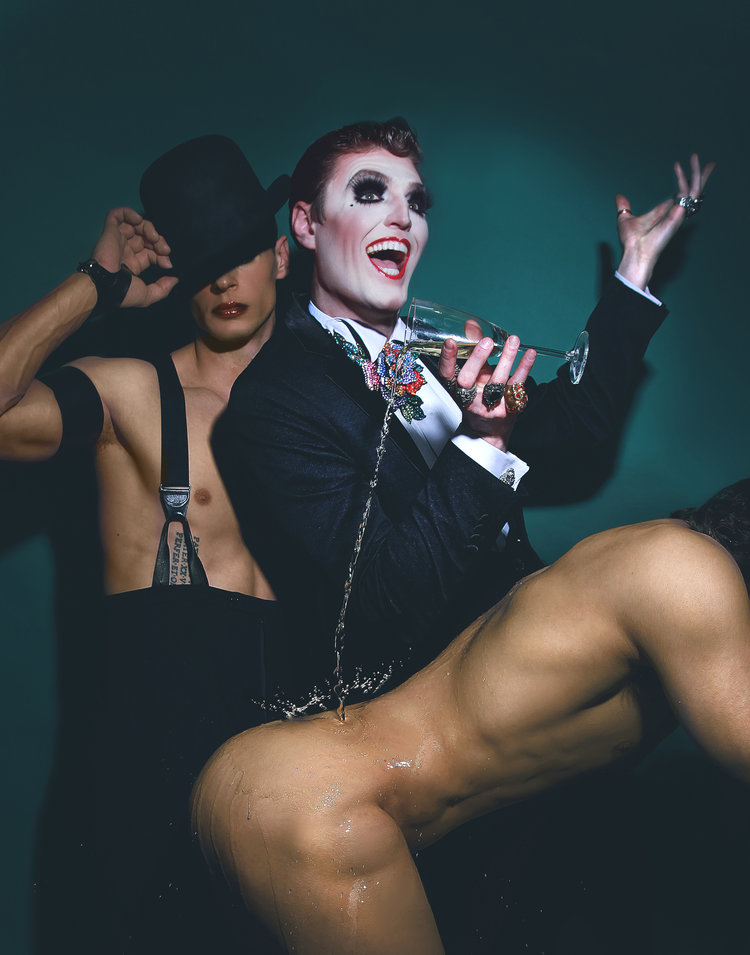
Reuben Kaye – Photography by Ayesha Hussain
He grew up in the Melbourne suburb of Kew, where his European parents created a world far removed from Vegemite and footy. His father, a painter and sculptor, came to Australia when his parents fled post-war Warsaw. Similarly, his mother was smuggled out of East Berlin, narrowly escaping the infamous Wall. Having settled in Melbourne, Kaye’s grandmother became a Collins Street couturier, while his mother took to scriptwriting and filmmaking.
“It was a very artsy house,” he explains.
“In Kew, we were definitely the people who didn’t fit in. We were the weirdos down the street blasting the house with opera until 5am. My brother Sam and I would dance around in dresses reenacting all the gruesome deaths from opera. I always played the woman he got to stab. Let’s just say the cards were dealt very early on! Our place never felt like an Australian house, it was more like being somewhere in Europe. In fact, I never really felt at home in Melbourne, because I could never relate to things outside our house. We lived in a strange world existing outside of the norm. How many ten-year-olds sit down to watch videos of Carlos Saura Flamenco films?”
“A lot said they now have kids, and if anyone did to them what they did to me, they’d kill them.”
It was indeed an alternative environment and one perhaps other children could crave. Given how gay boys escape to a world of theatre and Hollywood divas, for the young Reuben Kaye those surroundings were somewhat real.
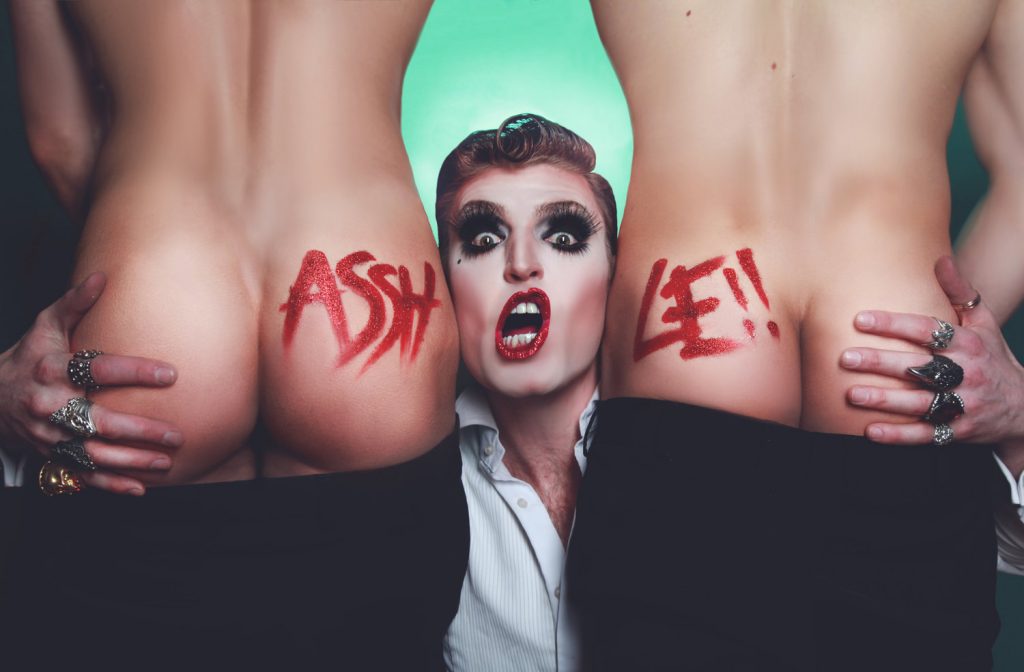
Reuben Kaye – Photography by Ayesha Hussain
“My mum was a brutally funny woman, who I loved as child,” he says.
“She would say, “If you haven’t got anything nice to say, came and sit by me”. I didn’t realise she was quoting Steel Magnolias and once I did, my mum became even more fabulous. I would come downstairs in the morning and there would be that blue haze of cigarette smoke. She was up at 5.30am writing with a fried egg and coffee. She was razor sharp and intensely maternal like a mamma bear.”
“I’m not trying to feminise my face, but to enhance the masculine aspects of it.”
His father, however, viewed life differently, but that’s not to say there wasn’t still a loving relationship.
“I don’t think my dad was ready to be a father, or a husband,” says Kaye.
“He was an artist and I think that through a lot of my parent’s marriage, he was another child. He was a wonderful ‘dad’ but maybe not really up to the duties of being a father. That also meant Mum had to often play the bad guy. That’s not really the best for a marriage, although we never saw them fight. They divorced when I was about eight which actually did my father a lot of good, because he suddenly had to step up and be a dad.”
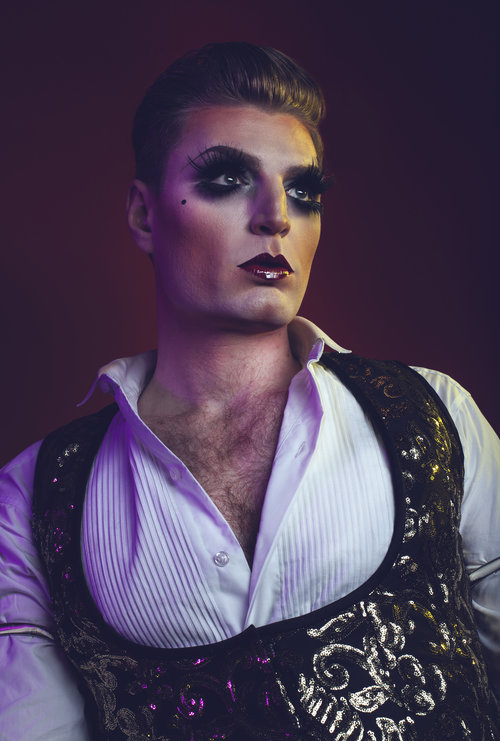
Reuben Kaye – Photography by Ayesha Hussain
For anyone who’s seen Kaye’s show, there’s a poignant story he tells of his father’s death, drawing parallels to applying his makeup and the creative brush strokes of his dad’s work. While there is that incredible artistic connection between father and son, it is somehow at odds with the negative reaction Kaye received when he came out.
“Yes, that’s why I was so struck by it,” says Kaye.
“But when I think about it, my dad was raised by two people who were destroyed by the Holocaust. My grandfather had passed onto my dad a huge amount of Holocaust trauma and he would have recurring nightmares. I think from that mindset, my dad felt that children are a continuation of survival. My dad loved being a father. He wasn’t the best at it, but he loved us. When I came out to Dad, his reaction was really about how he viewed the world and what would affect his son, more so than what his son needed in that moment. He was the solipsistic one. When kids come out to their fathers or to any person, they need “I love you” back. Because what they are actually saying is, “am I okay?”
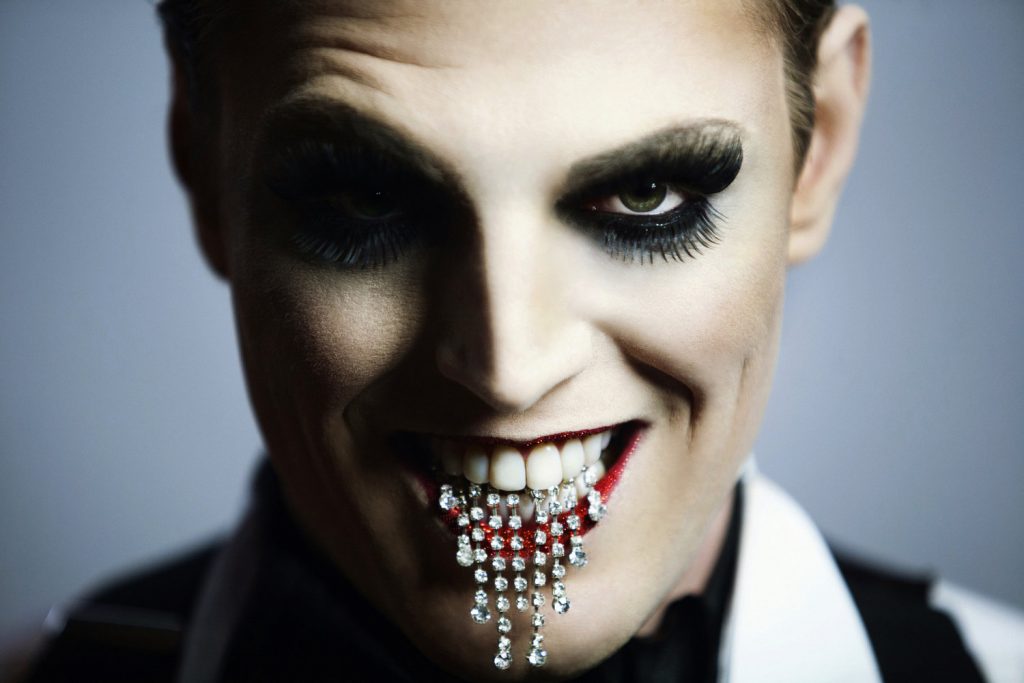
Reuben Kaye – Photography by Rachel Mia
For Kaye, growing up gay presented the all-too-familiar trait of harassment and bullying, perhaps even more so, given the honesty to live his true identity – even in school.
“I was pretty badly bullied all through school,” he says.
“I had to have my face stitched up a couple of times. I was thrown in front of open traffic and my locker would be vandalised. They ended up putting me on ‘surveillance’ where a class member, unbeknown to me, had to report in on me. The school just didn’t know how to deal with a gay kid. They’d send me to a therapist but didn’t tell my why or even bother to ask me anything.”
“However, my parents explained to me that school was just something we had to survive before getting out into the world, and meeting real people. Once you’re out of school, no one gives a fuck. While in school, I knew I wanted to be a performer and thought, “I don’t need any of this bullshit”. I decided I’d learn, but I didn’t need all the hierarchy and social conditioning, which wouldn’t factor into the life I was going to have. I survived it all through white knuckling. Queer people who were persecuted in high school can spot those who haven’t moved on a million miles away. And they can be forty years old. Just look at the people who are leading this country! I actually went to my high school reunion and surprisingly a lot of the guys come up to me and apologised. A lot said they now have kids, and if anyone did to them what they did to me, they’d kill them. One was even crying. Then I realised that these apologies were not about me. Unlike them, I was done with it and hadn’t held the weight in my heart. Sometimes the perpetrators of trauma hold onto it more than the victims.”
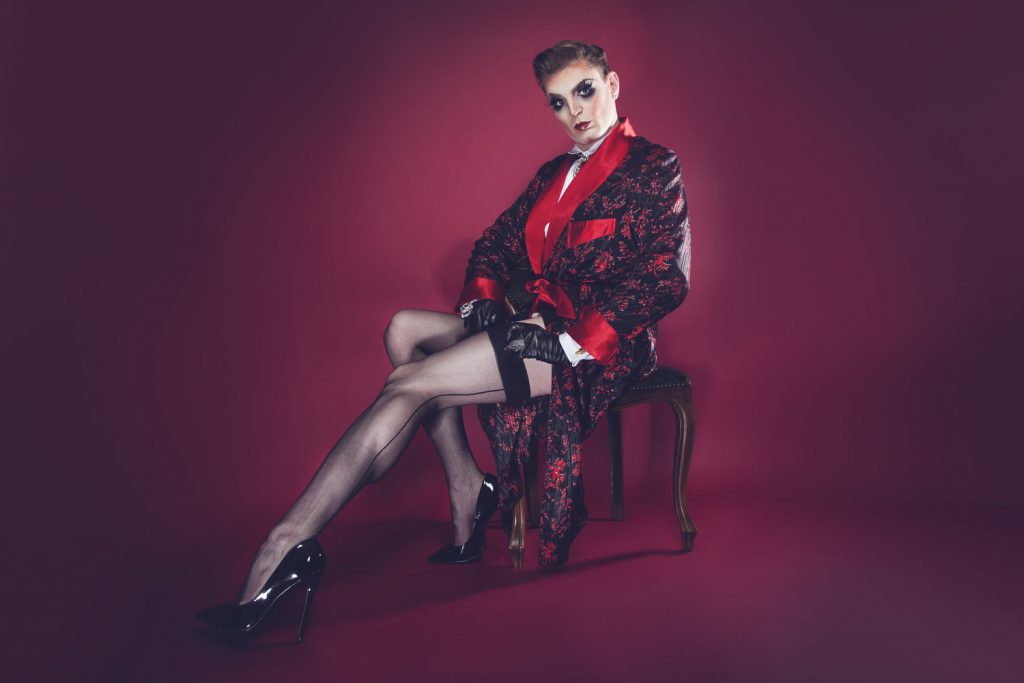
Reuben Kaye – Photography by Ayesha Hussain
To say that Kaye has moved forward is an understatement. After a short stint in musical theatre, he has turned heads in Europe and the UK with his repertoire of comedy, music, song and most importantly, storytelling – all with anachronistic gusto. He even ventured onto the UK’s Channel 4, where his heartwarming Kids React to Drag production received 20 million views in one day.
“When I moved to London I worked in places like the Savoy Hotel and Café de Paris and performed for likes of the Beckhams, Liz Hurley and Ruby Wax,” says Kaye.
“It was all kind of surreal and I thought, “Oh fuck!” Then I came back to Australia this year, went onstage at the Palais in St Kilda, and thought the same thing. There’s always that freelance paranoia that this gig could be the last time I’m ever booked! But then I’ll go and book another!”
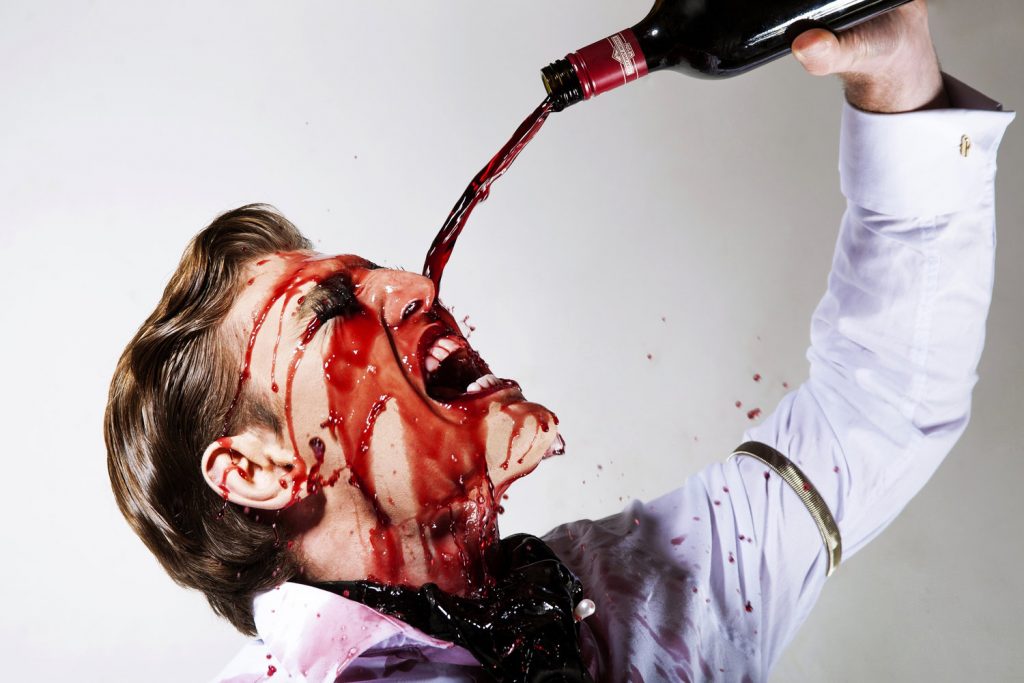
Reuben Kaye – Photography by Rachel Mia
Kaye’s return to Australia has been quite the success, having already won the Best Cabaret Award at the 2021 Adelaide Fringe Festival, but as with many, the COVID-19 lockdown had previously brought his work to a halt – something of a blessing in disguise.
“I underwent a sinus operation and during the procedure, the breathing tube sliced into my larynx!” he says.
“I went on to film my BBC debut with a strangely scratchy throat, unaware my left vocal chord had hemorrhaged. I was speaking with a bleeding vocal chord for about a week. So I had a second operation, on a local anesthetic where I was entirely awake, and let’s just say that having vocal surgery while fully conscious with the smell of a burning laser…well, I don’t recommend it! But I will say this. Melbourne’s first lockdown in 2020 was beneficial to me, because it gave me a year of rehab that I otherwise wouldn’t have had. We came back stronger than ever! A brilliant new producer got me onto the Melbourne International Comedy Festival Gala and that in itself was amazing, because there’s a huge prejudice against cabaret in the comedy community. It was so interesting to see this huge wave of acceptance with two cabaret acts including Michelle Brasier and myself, and we got nominated for most outstanding show! All in the face of people who say cabaret and comedy are mutually exclusive, but in fact comedy sits within cabaret and cabaret sits within comedy. They comment on each other, because they are two art forms without a fourth wall.”
Cabaret is undoubtedly in Kaye’s DNA, and despite the high heels, lipstick, eyelashes and trappings of drag, he considers himself a man playing with masculinity as opposed to a man playing with femininity.
“I’m an actor in make up,” says Kaye.
“I’m not presenting as a different gender or doing send up. I’m presenting very much as a man, and in a way I look at what I do as borrowing from drag kings. I’m not trying to feminise my face, but I enhance the masculine aspects of it, and you’ll think, “Oh fuck, that is a man!” It’s about reaching the effeminate within the masculine.”
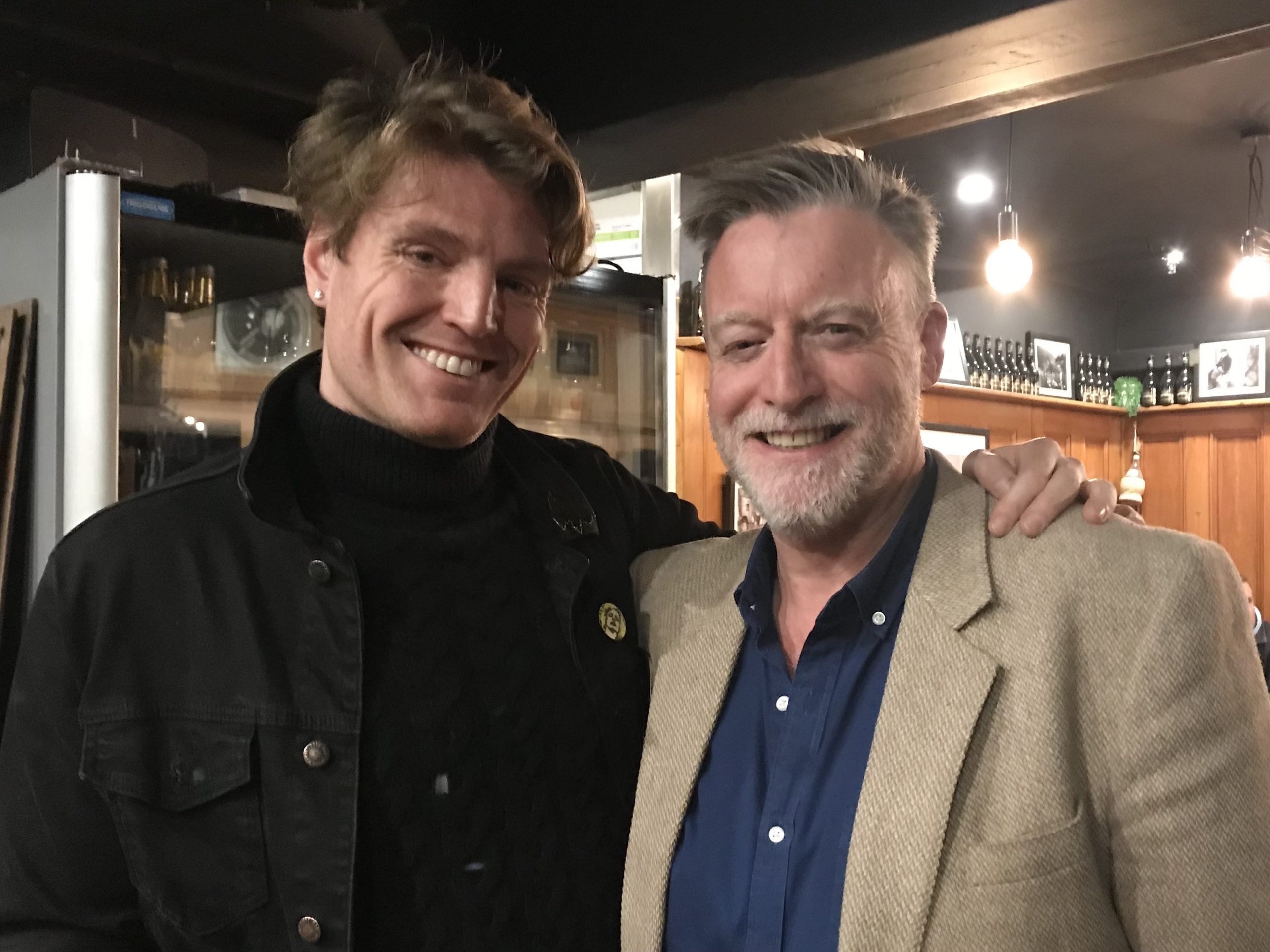
Reuben and myself catching up over some pizza and good conversation!
When watching the entertainer perform, it’s easy to see a unique gusto erupting from within. His voice is powerful in both the physical and metaphorical sense. Apart from gifted talent and a life that has shaped him thus far, one does have to wonder who in the industry are of influence.
“The people or performers who inspire me are the ones who use a platform to do something,” he says.
“You have to be an agent for change and there has to be something steely underneath. Melbourne’s Leasa Mann is a brilliant queen and is continually putting back into the community. She’s a mate and a stunning example. I love the fearlessness to be weird that is seen in Kate Bush. I also love Wayne County & the Electric Chairs, one of the first transgender rockers who wrote the songs Toilet Love, Cream in My Jeans, and If You Don’t Want to Fuck Me, Fuck Off! I’d also count Divine in there and Patti Labelle, because of the sheer audacity and humour in her vocals. Even Maryanne Faithful with the incredible Broken English and the beautiful European songstress Milva. Of course there’s also Liza and Judy. I’m just a walking cliché!”
“But I also get inspired by the local queens. I went to Throb in Darwin and did they put on a fucking show! The crowd loved them! But I think the production of RuPaul’s Drag Race now overtakes the queens and their creativity. The show puts the queens in a reality TV format, but I want to see queens do what they do at a club where they create their own look and get to perform under their own agency. I don’t think art and competition go hand in hand. Having said that, if they call me for a gig, I’m taking it and I’m invoicing!”
Follow Reuben on Instagram @theoriginalrubykaye
For more on show tickets visit: www.reubenkaye.com

